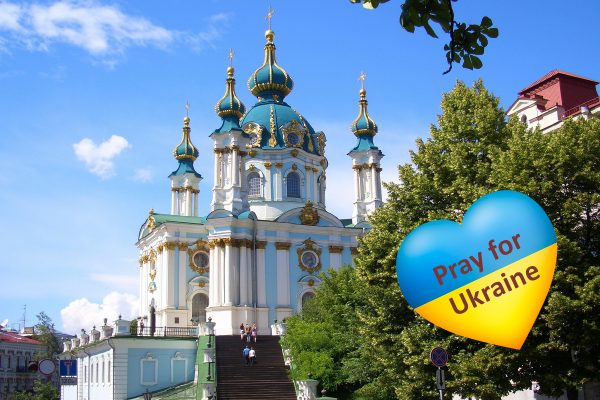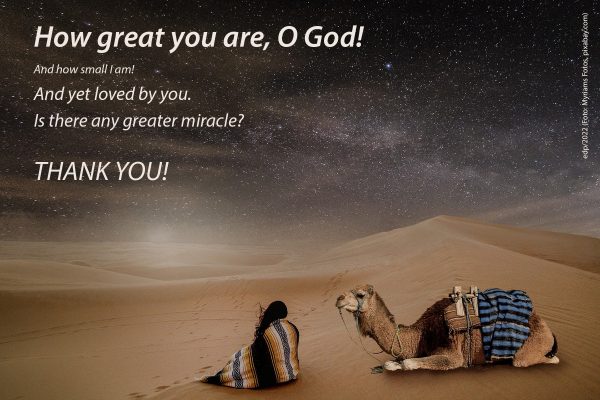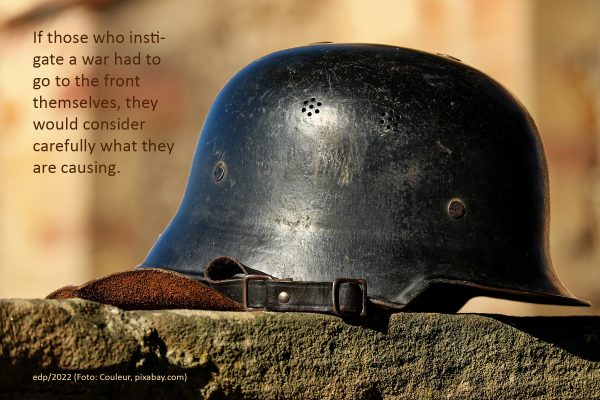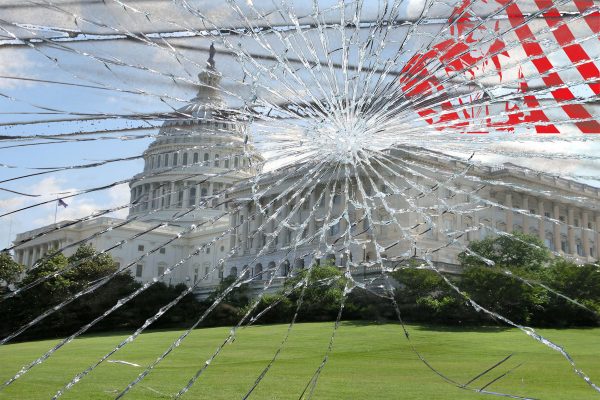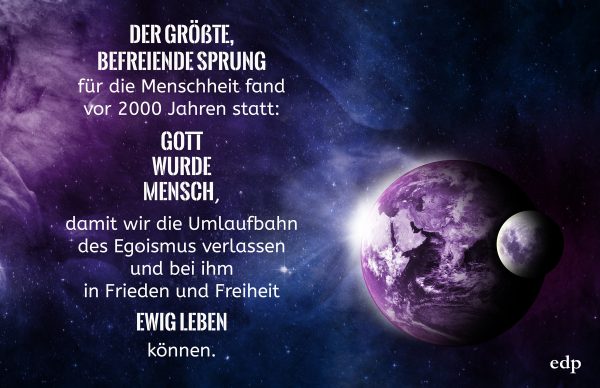
[nx_spacer]
Vergesst nicht, Fremden Gastfreundschaft zu erweisen, denn auf diese Weise haben einige Engel beherbergt, ohne es zu merken! (Hebräer 13,2 – Neues Leben Bibel)
Dieses Bibelwort kam mir sofort in den Sinn, als der Angriffskrieg gegen die Ukraine die größte Flüchtlingswelle nach dem letzten Weltkrieg auslöste. Die Aufnahmebereitschaft der Menschen in Deutschland, aber auch und besonders in Polen, Ungarn und Moldawien ist überwältigend. Menschen stellen Gästezimmer, Teile ihrer Häuser, Ferienwohnungen, Kirchenräume und vieles mehr zur Verfügung. Auch wenn häufig der gegenteilige Eindruck entsteht: Die Nächstenliebe ist in dieser Welt nicht gänzlich erloschen!
Sicher sind diese Flüchtlinge, überwiegend Frauen mit ihren Kindern, deren Männer zur Verteidigung der Heimat in ihrem Land blieben, nicht mit Engeln gleichzusetzen, oder? Ausschließen würde ich vorsichtshalber nichts. Fest steht: Wer diese Hilfesuchende gastfreundlich aufgenommen hat, hat Jesus als Gast aufgenommen (Matthäusevangelium 25,35).
Stell dir aber vor, ein Ehepaar klopft an deiner Tür und bittet darum, für ein paar Wochen aufgenommen zu werden. Und dieses Ehepaar ist … Erich Honecker mit seiner Frau Margot! Wie würdest du reagieren?
Das ist tatsächlich so geschehen: im Januar 1990. Nachdem sie entmachtet worden waren und die Mauer gefallen war, waren Erich und Margot Honecker praktisch obdachlos, denn die Regierungssiedlung in Wandlitz wurde aufgelöst. Die Modrow-Regierung bot dem ehemaligen Diktatorenpaar keinen Schutz. Einzig beim evangelischen Pastor Uwe Holmer und seiner Familie, die, wie viele andere, unter dem DDR-Regime gelitten hatten, fanden die Honeckers Zuflucht.

Zehn Wochen lang verbrachte der gestürzte DDR-Staatsratsvorsitzende mit seiner Frau im Wohnhaus des Leiters der Hoffnungstaler Anstalten Lobetal vor den Toren Berlins. Sie aßen an einem Tisch mit der Pfarrersfamilie, Holmer und Honecker gingen zusammen spazieren usw.

Angefeindet wurde der Geistliche reichlich. Dennoch bereut der inzwischen über 90-Jährige nicht, dem Ehepaar Honecker Kirchenasyl gewährt zu haben. „Wir wollten einen Neuanfang ohne Hass und Verachtung“, sagte Holmer in einem Gespräch.

Nein, einen Engel beherbergte er nicht. Aber er lebte die Bitte des Vaterunsers: „Und vergib uns unsere Schuld, wie auch wir denen vergeben haben, die an uns schuldig geworden sind.“ (Matthäusevangelium 6,12 NLB)
Zu solch einer Handlungsweise kann man sich nicht zwingen, sie muss vom Herzen kommen. Wie der Wünsch, Flüchtlingen zeitweise eine Zuflucht mit Familienanschluss zu bieten. Beides bewirkt der Geist Gottes, denn Er ist die Liebe!
- Der Film „Honecker und der Pastor“ wird im ZDF am Montag, 21. März 2022, 20.15 Uhr, gezeigt. Er ist seit dem 14. März 2022 für ein Jahr in der ZDF-Mediathek abrufbar. Mich und meine Frau hat er sehr beeindruckt!
![]()
Hosting the Honecker couple?
Do not forget to show hospitality to strangers, for by so doing some people have shown hospitality to angels without knowing it. (Hebrew 13:2 NIV)
These words came to mind when I saw how the war against Ukraine provoked the largest wave of refugees since the last world war. People’s willingness to accept refugees is impressive. They make available guest rooms, parts of their houses, holiday flats and much more.
Well, these refugees, mostly women with their children, are no angels, are they? I wouldn’t rule that out. Also it is quite certain: Those who are taking in those who need help, are receiving Jesus as a guest (Gospel of Matthew 25:35).
But imagine that a married couple knocks on your door and asks to be hosted for a few weeks. And this couple is… Erich Honecker with his wife Margot! How would you react?
That’s what happened in January 1990: after they were deprived of power and the Wall fell, Erich and Margot Honecker were left practically homeless. The Modrow government offered the former dictator no protection. Only the Protestant pastor Uwe Holmer and his family, who, like many others, had suffered under the GDR regime, gave them refuge. For ten weeks they stayed in his house on the outskirts of Berlin. They ate at the same table as the pastor’s family, Holmer and Honecker went for walks together, and so on.
Holmer received a lot of hostility. However, the man in his 90s has no regrets about granting asylum to the Honecker couple. “We wanted a new beginning without hatred and contempt,” Holmer said in an interview.
No, he did not host an angel. But he lived the petition of the Lord’s Prayer: “And forgive us our trespasses, as we also have forgiven those who trespass against us“. (Gospel of Matthew 6:12)
- The film “Honecker und der Pastor” will be shown on ZDF on Monday, 21 March 2022 at 8.15 pm. It is available in the ZDF media library from 14 March 2022 for one year. My wife and I were very impressed by it.
![]()
¿Hospedar al matrimonio Honecker?
No os olvidéis de practicar la hospitalidad, pues gracias a ella algunos, sin saberlo, hospedaron ángeles. Hebreos 13:2
Estas palabras me vinieron a la mente al ver cómo la guerra contra Ucrania provocó la mayor oleada de refugiados desde la última guerra mundial. La disposición de la gente a aceptar refugiados es impresionante. Ponen a su disposición habitaciones de huéspedes, partes de sus casas, pisos de vacaciones y mucho más.
Bueno, estos refugiados, en su mayoría mujeres con sus hijos no son ángeles ¿verdad? Yo no lo descartaría. Also es muy seguro: Los que están acogiendo a quienes necesitan ayuda, están recibiendo a Jesús como huésped (Evangelio de Mateo 25:35).
Pero imaginad que un matrimonio llama a vuestra puerta y pide ser acogido durante unas semanas. Y esta pareja es… ¡Erich Honecker con su esposa Margot! ¿Cómo reaccionarías?
Eso es lo que ocurrió en enero de 1990: Después de que se les privara del poder y de que cayera el Muro, Erich y Margot Honecker se quedaron prácticamente en la calle. El gobierno de Modrow no ofreció ninguna protección a la antigua pareja del dictador. Sólo el pastor protestante Uwe Holmer y su familia, que, como muchos otros, habían sufrido bajo el régimen de la RDA, les dio refugio. Durante diez semanas se alojaron en su casa a las afueras de Berlín. Comían en la misma mesa que la familia del pastor, Holmer y Honecker salían a pasear juntos, etc.
Holmer recibió mucha hostilidad. Sin embargo, este hombre de más de 90 años no se arrepiente de haber concedido asilo al matrimonio Honecker. “Queríamos un nuevo comienzo sin odio ni desprecio”, dijo Holmer en una entrevista.
No, no albergaba un ángel. Pero vivió la petición del Padre Nuestro: “Y perdona nuestras ofensas, como nosotros también hemos perdonado a los que nos ofenden”. (Evangelio de Mateo 6:12)
- La película “Honecker und der Pastor” se proyectará en la ZDF el lunes 21 de marzo de 2022, a las 20.15 horas. Está disponible en la mediateca de la ZDF desde el 14 de marzo de 2022 por un año. Nos ha impresionado mucho a mí y a mi mujer.


